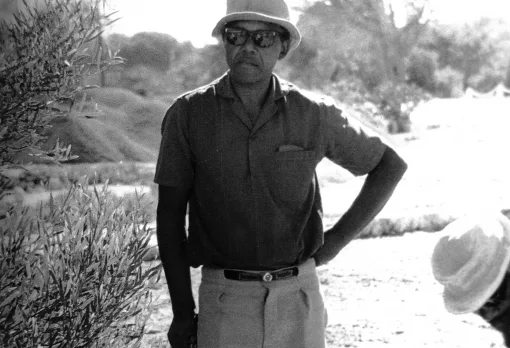The South African government has declared its intention to contest the upcoming auction of 75 artifacts linked to the country’s anti-apartheid hero, Nelson Mandela. The government argues that these items, bearing historical significance, should remain within the nation’s borders.

Scheduled for February 22, the auction is a collaboration between the New York-based auction house Guernsey’s and Mandela’s family, primarily spearheaded by his daughter, Dr. Makaziwe Mandela. The collection includes iconic items such as Nelson Mandela’s distinctive Ray-Ban sunglasses and “Madiba” shirts, personal letters scripted during his imprisonment, and a blanket gifted by former President Barack Obama and Michelle Obama.
It also includes a champagne cooler presented by former President Bill Clinton, with bidding commencing at $24,000. Additionally, Mandela’s post-1993 prison release identification document, referred to as his ID “book,” is part of the auction inventory.

Despite the North Gauteng High Court in Pretoria greenlighting the auction last month by rejecting an interdict from the South African Heritage Resources Agency, responsible for safeguarding the nation’s cultural heritage, the government announced its support for an appeal by the agency.
Minister of Arts and Culture Zizi Kodwa emphasized the government’s commitment to “preserve the legacy of former President Mandela and ensure that his life’s work” remains within South Africa.

Guernsey’s, promoting the auction on its website, anticipates a “remarkable” event, with proceeds earmarked for the construction of the Mandela Memorial Garden in Qunu, Mandela’s burial village.
Dr. Makaziwe Mandela, in an interview with the New York Times, expressed her father’s desire for the economic advancement of the former Transkei region, his birthplace, through tourism.
“I want other people in the world to have a piece of Nelson Mandela — and to remind them, especially in the current situation, of compassion, of kindness, of forgiveness,” she told the Times.
News of the impending auction has ignited fervent discussions on South African social media platforms, with numerous individuals condemning the sale of what they perceive as the nation’s cultural heritage.
This comes as many African countries desire the return of important artworks taken during colonial times to Africa, coinciding with the planned auction.


